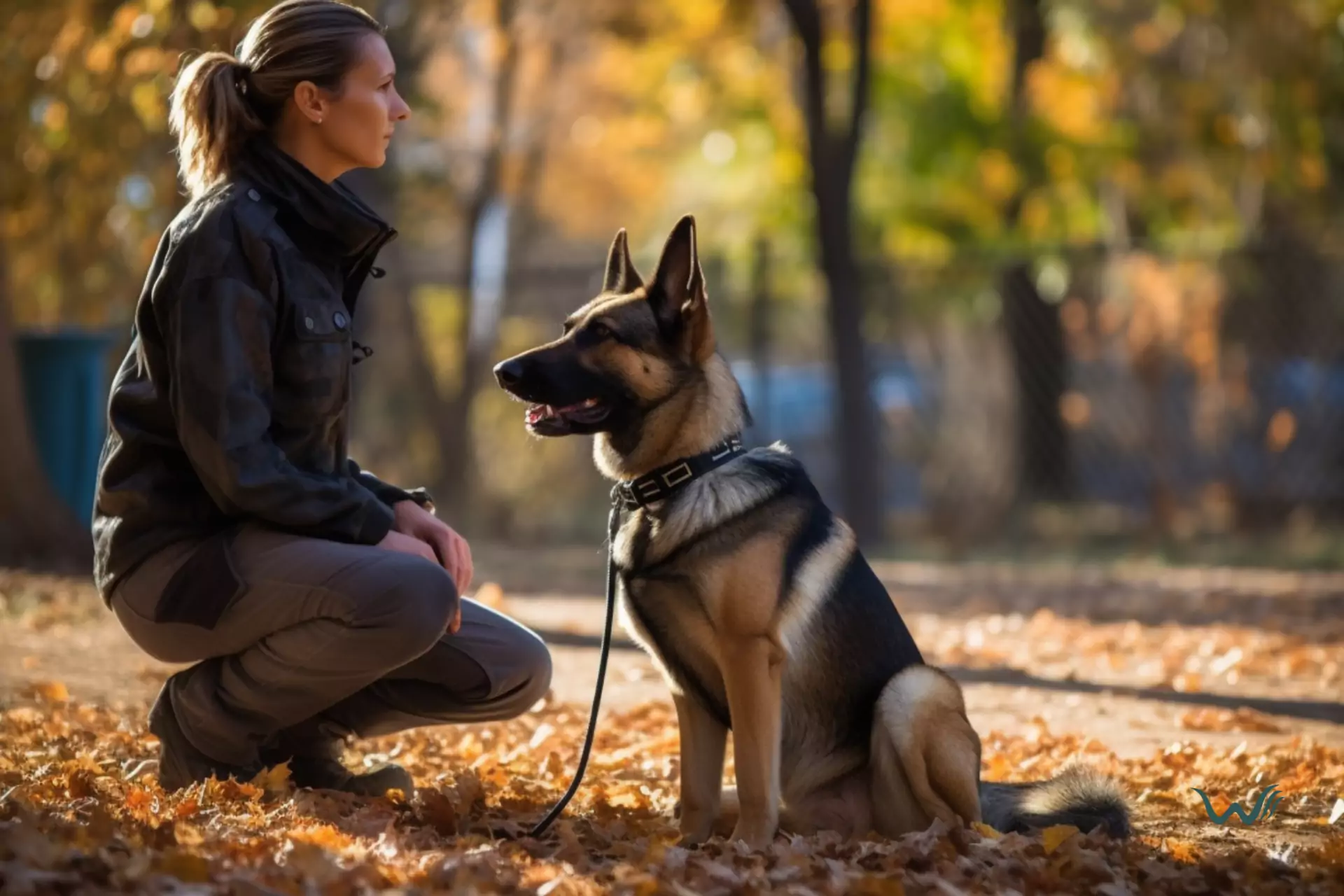

Do Dogs Get The Hiccups?
by Haley Mills
Last updated: January 30, 2024
Verified and Approved by:
Angela Morris,
MSW, LCSW
Fact Checked

Many dog owners have experienced the adorable and sometimes puzzling phenomenon of their furry friend getting the hiccups. But do dogs really get hiccups? The short answer is yes! Just like humans, dogs can get hiccups too. While it may not be a severe health concern, it can still cause curiosity and concern for dog owners. In this article, we will explore the physiology of dogs, common causes of hiccups in dogs, how to recognize the symptoms, and how you can treat dog hiccups at home. So, let’s dive in and uncover the fascinating world of dog hiccups!
Understanding Canine Physiology
Sure, dogs may be man’s best friend, but did you know they can also experience hiccups just like us? While it may seem strange to think of our furry companions having hiccups, it is actually quite common. Hiccups in dogs are caused by the same involuntary contractions of the diaphragm that humans experience. The diaphragm is a muscle located between the chest and the abdomen, and when it contracts involuntarily, it causes hiccups. Just like in humans, hiccups in dogs are usually harmless and go away on their own after a short period of time.
The exact cause of hiccups in dogs is poorly understood, but several factors are believed to contribute to their occurrence. One common cause is eating or drinking too quickly, which can cause the stomach to expand rapidly and irritate the diaphragm. Other potential causes include excitement, stress, and even changes in temperature. Some dogs may also be more prone to hiccups than others, just like some humans are more prone to hiccups. While hiccups in dogs are usually nothing to be concerned about, if your dog is experiencing frequent or prolonged hiccups, it is always a good idea to consult with your veterinarian to rule out any underlying health issues.
Common Causes of Hiccups in Dogs
One possible cause of hiccups in canines is when they consume their food too quickly. Just like humans, dogs can get hiccups when they eat too fast. When dogs gulp down their food, they may swallow air along with it, which can lead to hiccups. This is especially common in dogs that tend to be very enthusiastic eaters or those that have a competitive eating environment, such as multiple dogs eating together.
Another common cause of hiccups in dogs is excitement or stress. Dogs can get hiccups when they are overly excited or anxious, similar to how humans sometimes get hiccups when they are nervous. This can happen during car rides, meeting new people or animals, or high-energy play sessions. In some cases, hiccups in dogs may also be triggered by certain irritants in the environment, such as smoke or strong odors. It’s important to note that while hiccups in dogs are usually harmless and self-resolve within a few minutes, if your dog experiences persistent or chronic hiccups, it’s best to consult with a veterinarian to rule out any underlying health issues.
Recognizing the Symptoms of Dog Hiccups
Recognizing the symptoms of hiccups in canines is essential for pet owners. While hiccups in dogs may seem harmless, they can sometimes indicate an underlying health issue. One common symptom of dog hiccups is a repetitive, involuntary diaphragm contraction, resulting in a sudden, sharp sound. This sound is often accompanied by a slight jerking motion of the dog’s body. Additionally, dogs with hiccups may exhibit signs of discomfort or restlessness, such as pacing, licking their lips, or trying to bite at their sides. Observing these symptoms can help pet owners identify when their dog is experiencing hiccups and take appropriate action if necessary.
In some cases, dogs may also display other symptoms alongside hiccups. These can include excessive drooling, coughing, or even regurgitation of food or water. If these additional symptoms are present, it is important to consult a veterinarian as they could indicate a more serious underlying condition. It is also worth noting that hiccups in dogs are usually short-lived and resolve on their own. However, if a dog’s hiccups persist for an extended period of time or occur frequently, it may be a sign of an underlying health problem that requires medical attention. Therefore, being able to recognize the symptoms of dog hiccups can help pet owners ensure the well-being of their furry friends.
Treating Dog Hiccups at Home
Try these simple remedies for dog hiccups to help your furry friend at home. First, you can try gently massaging your dog’s chest or back. This can help relax the diaphragm muscles and stop the hiccups. Another option is to offer your dog a small amount of water. Drinking can help regulate the breathing and potentially stop the hiccups. Additionally, distracting your dog with play or a favorite toy can also help to alleviate the hiccups. By redirecting their attention, your dog may forget about the hiccups, and they will resolve on their own.
If your dog’s hiccups continue for an extended period of time or if other concerning symptoms accompany them, it is important to consult a veterinarian. They will be able to provide further guidance and determine if an underlying issue is causing the hiccups. In most cases, however, these simple remedies can help your dog find relief from their hiccups and get back to their playful self.
Can a Cold, Wet Nose in Dogs Cause Hiccups?
Yes, a cold, wet nose in dogs cannot cause hiccups. The moisture on a dog’s nose is due to a thin layer of mucus that helps them absorb scent chemicals. This is why dogs have wet noses, but it has no relation to causing hiccups.
When to Consult a Vet for Dog Hiccups
If your furry friend’s hiccups persist or seem to cause distress, it’s best to consult a vet. While hiccups in dogs are usually harmless and resolve on their own, there are certain situations where it’s vital to seek professional advice. If your dog has been experiencing hiccups for an extended period of time, such as more than a few hours, it could be a sign of an underlying health issue. Additionally, if your dog’s hiccups are accompanied by other symptoms like difficulty breathing, coughing, or vomiting, have them evaluated by a veterinarian.
Another reason to consult a vet for dog hiccups is if they occur frequently or are becoming more intense over time. Hiccups that occur frequently, especially if they happen multiple times a day or on a regular basis, may indicate an underlying health problem that needs attention. Similarly, if your dog’s hiccups are becoming more intense or severe, it could be a sign of a more serious issue that requires medical intervention. A vet will be able to perform a thorough examination and determine the cause of the hiccups, providing appropriate treatment or further testing if necessary. By seeking veterinary advice, you can ensure that your furry friend receives the best care possible and address any potential health concerns.
Frequently Asked Questions
Can dogs get the hiccups from eating too quickly?
Yes, dogs can get the hiccups from eating too quickly. When they eat too fast, they may swallow air, which can lead to hiccups. It’s a good idea to monitor their eating speed to prevent this.
Are hiccups in dogs a sign of a serious underlying health condition?
Hiccups in dogs are usually harmless and not a sign of a severe health condition. They can be caused by various factors, such as eating too quickly or excitement.
Can hiccups in dogs be caused by anxiety or stress?
Yes, hiccups in dogs can be caused by anxiety or stress. Just like humans, dogs can experience hiccups due to emotional triggers. Be sure to address the underlying cause of anxiety or stress to alleviate the hiccups.
Do certain breeds of dogs have a higher tendency to get hiccups?
Certain breeds of dogs may have a higher tendency to get hiccups, but it varies from dog to dog. Factors such as size, breed characteristics, and individual sensitivities can play a role in the likelihood of experiencing hiccups.
Can giving dogs certain medications or supplements help alleviate hiccups?
Giving dogs certain medications or supplements may help alleviate hiccups. However, it is essential to consult with a veterinarian before administering any medication to ensure it is safe and appropriate for your dog’s specific condition.
Certify Your Emotional Support Animal Today

Why You Can Rely on Us?
At Wellness Wag, we believe your pet deserves care rooted in both science and compassion. Each article is carefully researched, written in clear language for pet owners, and then reviewed by qualified professionals to ensure the information is evidence-based, current, and practical for real-life care. Our goal is to help you feel confident in making informed decisions about your pet’s health and well-being.
Reviewed by
Angela Morris, MSW, LCSW
Angela is a licensed clinical social worker with 20 years of experience in patient advocacy and community mental health. She has assisted numerous clients with ESA evaluations and brings a deep understanding of disability accommodations, ensuring that all information is accurate, supportive, and practical.

Written by :
Haley Mills
Last Updated :
January 30, 2024










